
Mary Hopkin, credited on some recordings as Mary Visconti from her marriage to Tony Visconti, is a Welsh singer-songwriter best known for her 1968 UK number 1 single "Those Were the Days". She was one of the first artists to be signed to the Beatles' Apple label.

"Those Were the Days" is a song credited to Gene Raskin, who put a new English lyric to the Russian romance song "Дорогой длинною", composed by Boris Fomin (1900–1948) with words by the poet Konstantin Podrevsky. It deals with reminiscence upon youth and romantic idealism. It also deals with tavern activities, which include drinking, singing and dancing.

"Sugar, Sugar" is a song written by Jeff Barry and Andy Kim. It was originally recorded by the cartoon band the Archies. This version reached No. 1 in the US on the Billboard Hot 100 chart in 1969 and remained there for four weeks. It also reached No. 1 on the UK Singles chart in that same year for eight weeks. The song became a hit again in 1970 when rhythm and blues and soul singer Wilson Pickett's version was listed on music charts.

"On My Own" is a duet by American singers Patti LaBelle and Michael McDonald. It was written and produced by Burt Bacharach and his former wife Carole Bayer Sager and originally recorded by singer Dionne Warwick for inclusion on her album Friends (1985). The song was eventually recorded by LaBelle and McDonald for her eighth studio album, Winner in You (1986). It was released as the album's lead single on March 22, 1986, by MCA Records. Lyrically, "On My Own" was based on a relationship that had reached its end with both parties going their separate ways in a melancholy state with the occasional option of coming back together again one day.

"How Am I Supposed to Live Without You" is a song written in 1982 by Doug James and Michael Bolton. The ballad has been recorded by many artists around the world, in several languages, most notably Bolton himself, becoming something of a modern pop standard. Instrumental versions of the song have been recorded featuring variously the piano, guitar, saxophone, pan flute, steel drum, and music box.

"Heaven Is a Place on Earth" is a song by American singer Belinda Carlisle from her second studio album, Heaven on Earth (1987). Written by Rick Nowels and Ellen Shipley, the song was released as the lead single from the Heaven on Earth album on September 14, 1987, and it reached number one on the US Billboard Hot 100 on December 5, 1987, becoming Carlisle's only US chart-topper to date. A month later it peaked at number one in the United Kingdom, where it held the top spot of the UK Singles Chart for two weeks. It is considered to be Carlisle's signature song.
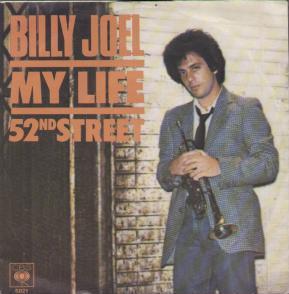
"My Life" is a song by Billy Joel that first appeared on his 1978 album 52nd Street. A single version was released in the fall of 1978 and reached No. 2 on the U.S. adult contemporary chart. Early the next year it peaked at No. 3 on the Billboard Hot 100.
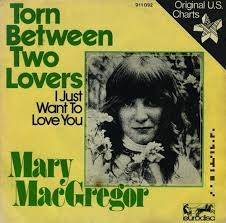
"Torn Between Two Lovers" is a song written by Peter Yarrow and Phillip Jarrell that speaks about a love triangle, and laments that "loving both of you is breaking all the rules". Mary MacGregor recorded it at Muscle Shoals Sound Studio in 1976 and it became the title track of her first album.

"Chirpy Chirpy, Cheep Cheep" is a song recorded in 1970 by its composer Lally Stott, and made popular in 1971 by Scottish band Middle of the Road for whom it was a UK #1 chart hit. That version is one of fewer than fifty singles ever to have sold in excess of 10 million physical copies worldwide.
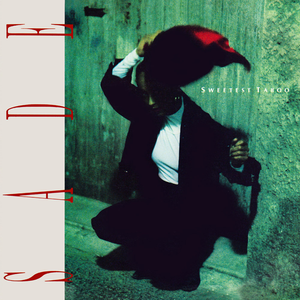
"The Sweetest Taboo" is a song by English band Sade from their second studio album, Promise (1985). It was released on 12 October 1985 as the album's lead single. While the song peaked at number 31 on the UK Singles Chart, it fared considerably better in the United States, where it reached number five on the Billboard Hot 100 in March 1986, remaining in the top 40 for 13 weeks. It also became the band's second consecutive number-one single on the Billboard Adult Contemporary chart, following "Smooth Operator".
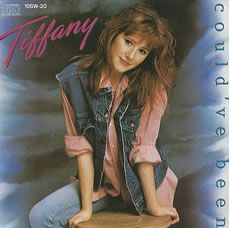
"Could've Been" is a song by American teen-pop singer Tiffany, released as the third single from her debut album, Tiffany (1987). Commercially, the song proved to be a successful follow-up to her debut single "I Think We're Alone Now", peaking atop the US Billboard Hot 100, the Canadian RPM Top Singles chart, and the Irish Singles Chart in early 1988. It also reached number four on the UK Singles Chart and number five in New Zealand.

"Feelings" is a song by the Brazilian singer Morris Albert, who also wrote the lyrics. Albert released "Feelings" in 1974 as a single and later included it as the title track of his 1975 debut album. The song's lyrics, recognizable by their "whoa whoa whoa" chorus, concern the singer's inability to "forget my feelings of love". Albert's original recording of the song was very successful, performing well internationally.

"There'll Be Sad Songs " is a song by English singer Billy Ocean from his sixth studio album, Love Zone (1986). The song was written and produced by Wayne Brathwaite and Barry Eastmond; Ocean was also credited as a co-writer for the song. The song reached number one on the Billboard Hot 100 for the week beginning 5 July 1986, where it remained for one week, becoming the 600th song to ascend to that position. It also topped the adult contemporary and R&B charts in the United States that same summer.

"Knock, Knock Who's There?" is a song written and composed by John Carter and Geoff Stephens, released on Apple Records. It was originally sung and recorded by the Welsh singer Mary Hopkin and was the United Kingdom's entry at the Eurovision Song Contest 1970, where it came second. The single version was produced by Mickie Most and reached No. 2 on the UK charts.
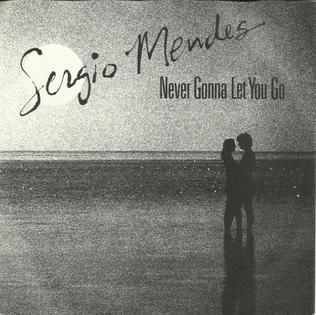
"Never Gonna Let You Go" is a popular song from 1982 written by the husband-and-wife songwriting team of Cynthia Weil and Barry Mann; Weil wrote the lyrics, while Mann wrote the music. It was first recorded by Dionne Warwick for her 1982 album Friends in Love, then by singer Stevie Woods for his 1982 album The Woman in My Life. However, its best-known rendition was by Brazilian musician and bandleader Sérgio Mendes, on his 1983 self-titled album. That version was sung by Joe Pizzulo and Leeza Miller.
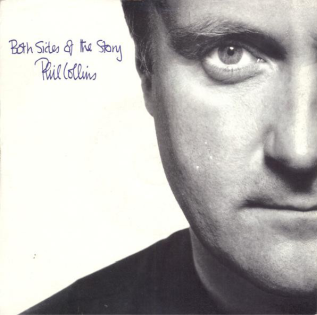
"Both Sides of the Story" is a song performed by English drummer Phil Collins. The song was released in October 1993 as the lead single from his fifth album, Both Sides, released the same year. The song reached number seven on the UK Singles Chart and number 25 on the US Billboard Hot 100. It charted the highest in Canada, peaking at number two on the RPM Top Singles chart. The single's B-sides vary, as copies of the single include either "Always" or "Rad Dudeski".

"Penny Lover" is the title of the fifth and final single released from Lionel Richie's multi-platinum 1983 album, Can't Slow Down. The song was written by Richie and his then-wife, Brenda Harvey Richie.

"Cry Just a Little Bit" is a song originally a hit for British singer Shakin' Stevens in 1983 from his release The Bop Won't Stop, reaching #3 in the UK charts. and #67 on the Billboard Hot 100 charts in the United States.

"Early in the Morning" is a song by British band Vanity Fare, released as a single in June 1969. It became an international hit, peaking at number 8 on the UK Singles Chart and number 12 on the Billboard Hot 100 and was awarded a gold disc for sales over one million.
This is the discography of Welsh folk singer-songwriter Mary Hopkin.



















